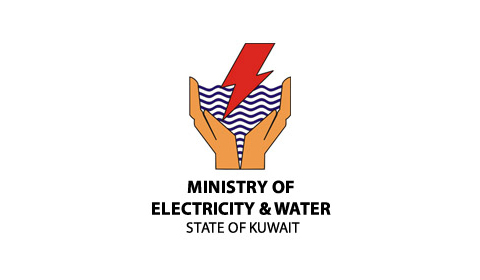KUWAIT: Ministry of Electricity and Water Undersecretary Mohammad Bushehri headed the 31st meeting of the executive committee to nationalize power and water use in government departments, in the presence of several ministry officials and representatives of ministries and government institutes. Bushehri lauded the efforts of committee members as well as procedures taken in their departments.
He said the new energy consumption tariffs will be applied to the public sector from Nov 22, and asked government departments' representatives to inform their ministries. He said the one kilowatt in the government sector will be priced at 25 fils, while the 1,000 gallons of water will cost KD 4.
Head of the rationalization committee Khalifa Al-Furaih said the ministry plans to hold its first power rationalization symposium on Dec 6-7 in order to shed light on ministries' efforts, authorities, voluntary committees, companies and individuals in the field of spreading the culture of rationalizing the use of power and water.
Non-profit companies
The Ministry of Commerce and Industry opened the door for establishing and licensing non-profit companies of individuals with limited liability. The ministry said companies of individuals (non-profit) are under the rules of limited liability companies as mentioned in the companies law no. 1/2016, its amendment law no. 15/2017 and its executive bylaws.
These companies are not allowed to practice or support political, religious and ideological activities or any activity that is under any supervisory authorities without obtaining its approval, as well as transfer to a for-profit company. It said these companies are allowed to use their profits and returns only to serve the purpose they are founded for. It added the company cannot distribute profits directly or indirectly to any of the partners. These companies cannot issue bonds or sukuk or receive donations. The ministry said establishment of the one-person company can be done through the website of the one-window department (www.kbc.gov.kw), starting with a capital of only KD 1,000.
Age limit
The Public Authority for Manpower reached an agreement with the commerce and interior ministries whereby the age of licensed consumer delivery vehicles will be limited to 10 years, director of manpower estimation at the authority Sultan Al-Shaalani said. Another agreement with the farmers' union will allow labor requirement estimation inspectors to make field visits to farms and markets that belong to the union to find out the scale of work.
Construction material
Informed sources at the commerce and industry ministry said most linking operations with the Kuwait Supply Company and the Credit Bank are complete to make sure construction material is provided to beneficiaries, with quantities allocated to each beneficiary from the bank's loan. Sources said supervisory authorities asked the ministry to review its procedures and use systems that confirm the quantities distributed and that they conform to ministerial decree 638/2012.
General debt
Well-informed sources said the government plans to establish an independent administrative authority that would be structurally separated from the finance ministry to manage general debt. The sources added that it would be necessary that such an authority be independent and its formation might start immediately after the parliament passes the amended borrowing law that would increase the maximum borrowing limit to KD 25 billion.
In a related development, a State Audit Bureau report called for caution over what it described as sovereign or government debt merchants who sometimes take advantage of a state's need to borrow to make personal gains and profits. Accordingly, the State Audit Bureau made a few recommendations to be respected on borrowing from foreign markets, including considering the risk of both local and foreign over-borrowing and the need to avoid its negative impact, not to always opt to borrowing to cover budget deficits without conducting real economic reforms, maintaining Kuwait's high credit rating, adopting a package of legislative reforms as a base for development, avoid borrowing to fund the future generations fund, setting a limit for borrowing and working on collecting overdue public funds to increase non-oil revenues that had retreated during the past two years.
By Meshaal Al-Enezi and A Saleh











